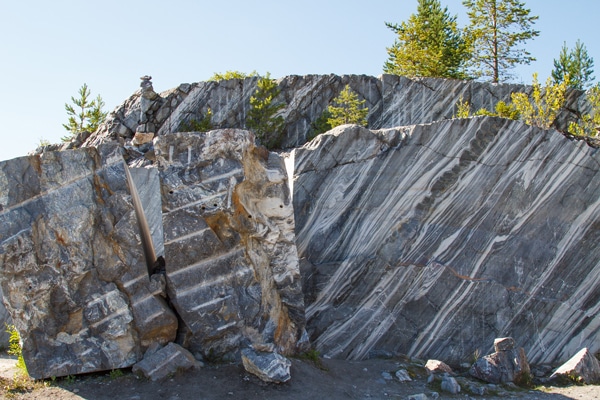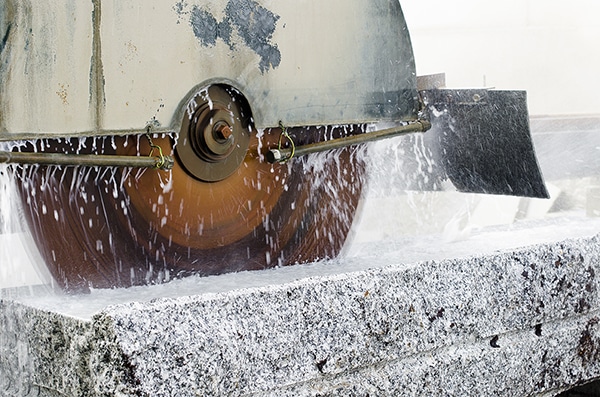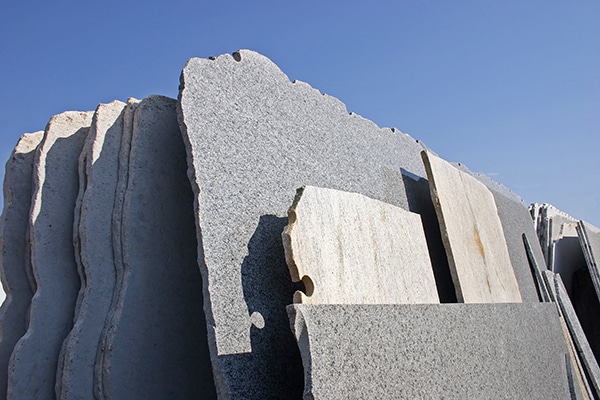


Natural and man made stone provide a beautiful and long-lasting countertop for your kitchen or bathroom.
We recommend a 15 year sealer that makes natural stone virtually maintenance free for 15 years.

How to care for your stone countertops.
(Click below to open up the accordian text)
There are several different types of natural stone and each has its own level of porosity. The more porous the stone, the more easily it can stain. Therefore, the more protection you will want to help guard your investment. Depending on your lifestyle, you may want to consider sealing your stone on a regular basis. Sealing will help slow down the staining process. Manufacturers recommend sealing once every one to three years depending on the amount of usage the stone area receives. Your Design Consultant can offer you recommendations about sealing.
All natural stone slabs, just like the natural stone tile, begin their existence as giant pieces of rock that are removed from large quarries and are then cut into slabs. Each slab has its own shape and characteristics. Veining, crystallization, irregular markings, shading are all considered normal aspects of natural stone and add to its authentic look. No two slabs of the same type of stone will look exactly the same.
Do not use products that contain vinegar, abrasives or any ammonia-based cleaners, such as Windex™. These products will dull the luster of your stone. Additionally, do not use retail grout cleaners or bathroom cleaners on your stone.
Acidic foods, such as lemons, tomatoes and soda can cause potential damage by changing the color of your stone. Also, protect your stone from oil-based products such as olive oil, cooking oil and oil-based cosmetics which can stain your countertop.
Please remember, it is the responsibility of the homeowner to maintain all caulked areas.
If cared for properly and routinely maintained, your new stone countertop will bring your household lasting beauty.
-
Quartz surfaces are virtually maintenance free. There’s no sealing, buffing, polishing or reconditioning required.
-
Routine cleaning involves little more than soapy water or a mild household cleaner.
-
Because it is non-porous, quartz polished surfaces do not need to be sealed as do other stones to prevent staining. Unlike granite, quartz surfacing is a nearly indestructible material. It is resistant to stains caused by wine, fruit juices, liquid food coloring, tea, nail polish and remover, and felt-tip markers.
-
Its non-porous nature is also extremely hygienic, making it a food-safe choice.
-
Though the quartz surface can briefly tolerate moderate temperatures for a brief time, it can be damaged by high heat and prolonged exposure to heat. Use a hot pad or trivet when placing a hot pan on it.
-
To prolong the life of your knives, always use a cutting board. Natural quartz is one of the hardest minerals found in nature. That same hardness may dull the sharpness of most knives.
-
Continuous long-term exposure to direct sunlight may result in slight discoloration of natural quartz surfaces.
-
No surface is indestructible, though. As with any other stone or surface material, strong chemicals and solvents, oven cleaners and floor strippers will damage the surface.
